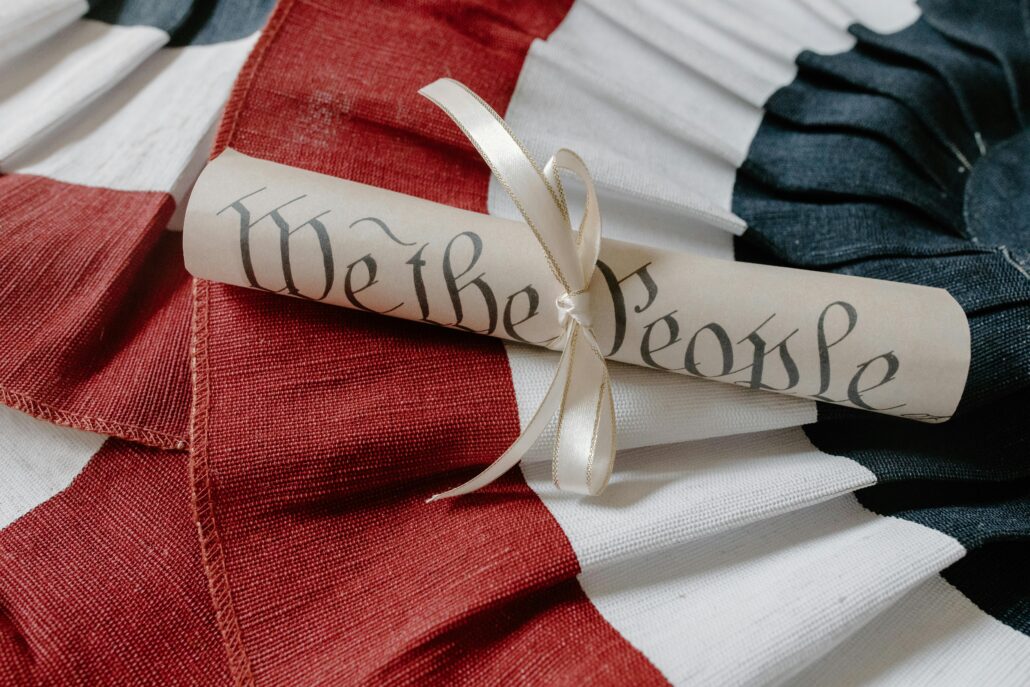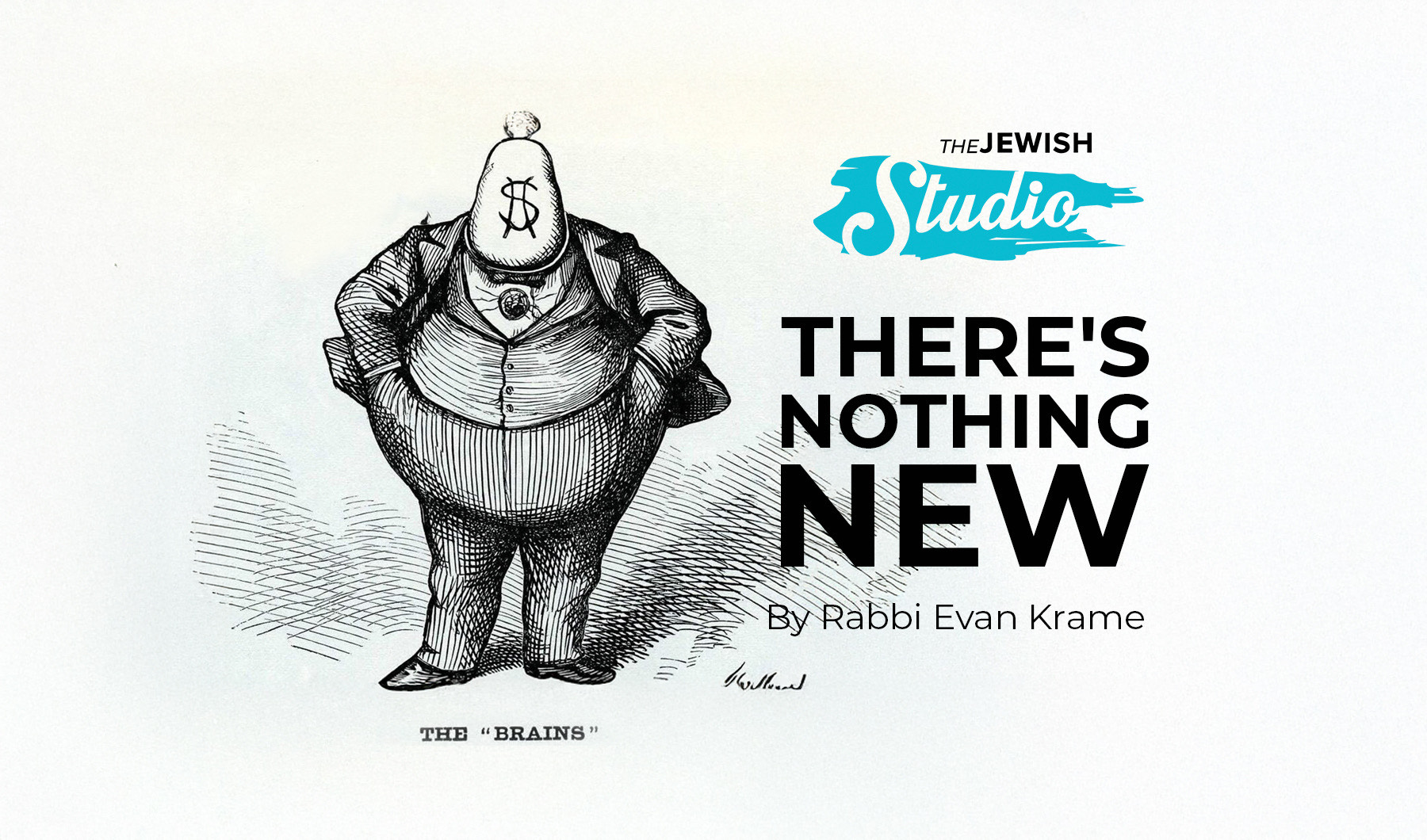The Business Insider recently reported a 660% increase in applications for Costa Rican passports, with other Latin American and Asian countries seeing similar trends. Fueled largely by wealthy Americans, this new “passport rush” has become the modern Plan B. Many of those considering new homes are Jewish Americans.
Over the past decade, many Americans have been concerned about the rise of populism. Yet we reassured ourselves that democracy in America was secure, that strong guardrails would hold, and that Jews were safe. Some reveled in strong U.S. support for Israel. Others took comfort in the fact that the President had a Jewish daughter and grandchildren.
But history suggests caution. If you believe everything is fine in America, listen closely for a different perspective. And if you do not believe all is well, this historical lens is even more urgent.
Jewish history. Jewish history is a story of emigration. The Torah itself begins with movement: Adam and Eve exiled from Eden, Noah and his family afloat after the flood, Abraham and Sarah journeying to the Promised Land. We are the wandering Jews.
In 1492, while Columbus was preparing to sail the ocean blue, Don Isaac Abravanel, a Jewish financier and statesman, served as treasurer to King Ferdinand and Queen Isabella of Spain. Despite his best efforts, through persuasion and even bribery, he could not stop the Spanish Inquisition’s decree expelling all Jews from Spain. He, too, was forced into exile. The lesson: bribery and appeasement do not protect Jews from monarchs or despots.
Theodor Herzl. Centuries later, Theodor Herzl, a journalist in France, was shaken by the Dreyfus Affair of 1894, when a Jewish army officer was falsely accused and convicted of espionage. Herzl concluded that Jews could never truly live safely among other nations. His solution: a Jewish homeland. And so began modern Zionism.
Though Israel would not be established until 1948, the story is more complex. On July 12, 1906, Alfred Dreyfus was exonerated thanks to the efforts of intellectuals such as Émile Zola. French Jews regained a measure of acceptance. Many rose to prominence—Leon Blum as Prime Minister in 1936, René Mayer in 1953. In the 1960s, France even became a haven for Jews from North Africa. Today, 500,000 Jews live there.
And yet Herzl’s warning still echoes. Antisemitism in France—home to the world’s sixth-largest Jewish community—has surged to historic levels. After Hamas attacked Israel on October 7, 2023, antisemitic incidents in France quadrupled, with 1,676 reports that year alone. Thousands of Jews are leaving annually. Rabbi Moshe Sebbag of Paris’ largest synagogue declared: “It is clear today that there is no future for Jews in France. I tell everyone who is young to go to Israel or a more secure country.”
Others argue the opposite: that French Jews must hold their ground, protect what they have built, and defend the civilization they helped shape. If Jews abandon their homes, they relinquish a sacred responsibility: to repair the world wherever we live. To give in to threats anywhere is to never live safely everywhere.
Rabbi Leo Baeck. Rabbi Leo Baeck was the spiritual leader of German Jewry in its darkest hour. As war approached and opportunities to escape were presented, Baeck chose to remain in Berlin with his people. He negotiated with Nazi authorities, sustained schools and synagogues, and even in Theresienstadt, he continued to teach and comfort. Survivors called him “the Rabbi of Theresienstadt,” a symbol of dignity amid despair.
But his courage of presence was not enough. He could not rally his people to escape when flight was still possible. He hoped for reason in an age of brutality. His restraint, however admirable, was tragically insufficient.
The lesson: spiritual resilience matters, but survival requires courage, vision, and decisive action.
American Democracy. Even while Baeck was a leader in Germany, the United States did not feel like a safe home for Jews between the world wars. Have you listened to Rachel Maddow’s podcasts? In the 1920s, Henry Ford published the anti-Semitic Dearborn Independent, the second most popular newspaper of its time after the New York Times. The paper mimicked the Protocols of the Elders of Zion.
In the 1930s, Father Coughlin was immensely popular on the radio, with 40 million listeners applauding his fascist and antisemitic screeds.
Silver Shirts leader William Dudley Pelley called for the segregation of Jews into ghettos.
In 1950, before a three day convention of 3,000 in Los Angeles, Francis Yockey claimed that the Holocaust was a sham and that Jews controlled the world. Oh, and that one of Truman’s top advisers was a pedophile!
Even as Jews in Europe were on the precipice of destruction, U.S. quotas against immigration stayed in place, largely attributable to American racism and anti-Semitism.
Rabbi Stephen Wise. Undeterred by the pro-Nazi and anti-Semitic rhetoric, Rabbi Stephen Wise organized American Jews. As the Nazis came to power, Wise planned boycotts against German products. As the war began, Wise worked tirelessly to save Europe’s Jews. Through the American Jewish Congress, he organized rallies, boycotts, and meetings with Roosevelt, demanding a U.S. response to Nazi atrocities.
Natan Sharansky. Perhaps the bravest among Jews who stood for justice and freedom against fascism and tyranny was Natan Sharansky. Sharansky embodied defiance in the Soviet Union. Imprisoned for demanding the right to emigrate, he never bowed. His courage helped ignite a movement that freed hundreds of thousands of Soviet Jews. He proved that one determined Jew can spark liberation for many.
So what about us?
We live in a time of rising antisemitism—from the radical right, armed with conspiracy and violence, and from the radical left, cloaked in justice but denying Jewish peoplehood. We live in an era when democracy itself is in peril.
Too often, our response is paralysis. We bite our tongues, afraid of being called alarmists. We remain silent, hoping “the system” will hold. Fear and apathy keep us still.
But Leo Baeck’s story warns us: waiting for reason to prevail in an age of acrimony is not enough.
So what must we do?
- Strengthen our institutions. Support synagogues, schools, community centers, and security initiatives. They are our backbone.
- Educate our children. Teach Jewish pride, history, and resilience. Knowledge counters shame; preparedness counters fear.
- Raise our voices. Write, speak, protest, vote. Silence protects no one. Democracy survives only when defended loudly.
- Form alliances. Stand with other minorities—against racism, Islamophobia, xenophobia—just as we ask them to stand with us.
- Hold leaders accountable. Demand they reject antisemitism and defend democratic norms, regardless of party.
- Practice hope through action. Hope is not wishful thinking. It is a conviction that what we do matters.
The Psalmist teaches: “Seek peace and pursue it” (Psalm 34:15). Seeking is longing; pursuing is action. Rabbi Leo Baeck taught hope. Natan Sharansky embodied action. Today, we must embrace both.
The greatest danger is not only the hate around us but the fear and apathy within us. Let us not be the generation that hesitated until it was too late. Let us be the generation that stood firm, spoke loudly, built coalitions, and defended democracy.
The shofar blasts are a call to awaken. Now is the time for thoughtful action: to vote, to speak, to support the vulnerable, to engage—even when odds seem overwhelming. Courage begins with small acts: speaking truth in conversation, supporting honest journalism, and standing up for fairness. The gates are not yet closed.
Yes, the relentless stream of conflict and dire headlines has left us anxious and exhausted. “Perseverative cognition”—endless worry loops—makes us feel powerless. Many disengage for self-preservation.
The state of our political affairs is deeply troubling. Surveys show 75% of Americans believe democracy is threatened, yet few trust leadership on either side. And deep polarization between left and right silences action, as people retreat to avoid conflict.
But it is far too soon to pack our bags. Jewish and American history alike remind us: meaningful action often begins long before the tipping point. Small acts of courage can tilt the balance.
We still have the power to act bravely, kindly, and constructively. Millions will protest on October 18. Will you join them?
Candidates who speak truth to power are running for office in Virginia, New Jersey, and across America. Will you support them?
Many are afraid of losing their jobs or being deported because they were not born in America. Will you be advocates for them?
Others are being ostracized or expelled for expressing views that oppose the current administration. Will you speak up for them?
Until every avenue is exhausted—until we have joined, supported, advocated, spoken out—it is not time to abandon hope. It is time to dig deeper, to draw from the resilience and purpose that our tradition offers.
Let us not be remembered as silent when justice calls. Let us be remembered as faithful like Leo Baeck, advocates like Stephen Wise, courageous like Natan Sharansky, and idealistic like Theodor Herzl. There is still room for hope—if we act boldly, wisely, and together.
May the one who makes peace in the heavens bring peace down to us, to these United States, to Israel and its neighbors, to the entire planet, and let us not wait any longer to be God’s hand in changing the world.





